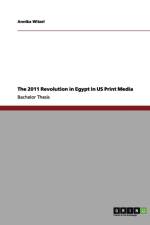- The perception of RIAS Berlin in East Germany and the GDR between 1946 and 1953
von Annika Witzel
17,99 €
Seminar paper from the year 2012 in the subject History of Germany - Postwar Period, Cold War, grade: 1,3, University of Bonn (Institut für Anglistik, Amerikanistik und Keltologie (IAAK)), language: English, abstract: 1. Introduction¿RIAS has always been more than just the initials of an American post-waroperation in divided Berlin. For many people in Berlin and in East GermanyRIAS Berlin was and still is a part of their life; a piece of their very personal biography¿(Kundler 2002: preface)This statement was made by Siegfried Buschschlüter, RIAS broadcasting director, in October 1993, a few months before RIAS¿ history ended and the one of its successor, Deutschlandradio, began. RIAS, short for Rundfunk im Amerikanischen Sektor was established in Berlin by the United States Information Agency in 1946 and has played a significant role in German media history in the post-war era. Its motto ¿A free voice of the free world¿ proves the objective of the station and the position it saw itself in. Thepaper at hand aims at investigating this role and will elaborate on the question why this station was so special to the people ¿ especially to the people in East Germany and later the German Democratic Republic (GDR). Measuring the impact of RIAS on the people in East Germany and the GDR might seem impossible, since in these areas it was officially forbidden to listen to the station. Still, people did listen, since radio had the important advantage that it could be received almost everywhere while Western presswas not legally and easily available for the people in East Germany (Soldat 2008: 184).Therefore, it is very important to note that this paper's objective is twofold: it does not only look at the perception of RIAS by its target listeners in East Germany/the GDR but also at the way how East Germany's government perceived and reacted to the station. The most important historical event bringing together those two sides is June 17th, 1953, since this day, RIAS and its reporting triggered the strongest reactions from both sides of the spectrum. This is mainly the reason why 1953 was used in this paper as a frame year to limit the focus of this paper on a particular period of time. Of course the influence of RIAS did not end with the year 1953, on the contrary. There were many events such as the erection of the Berlin Wall in 1961 or Kennedy's visit to Berlin in 1963 to which RIAS and its reporting had a lot to contribute. However, these events after the revolts in 1953 will be left out in this paper.




